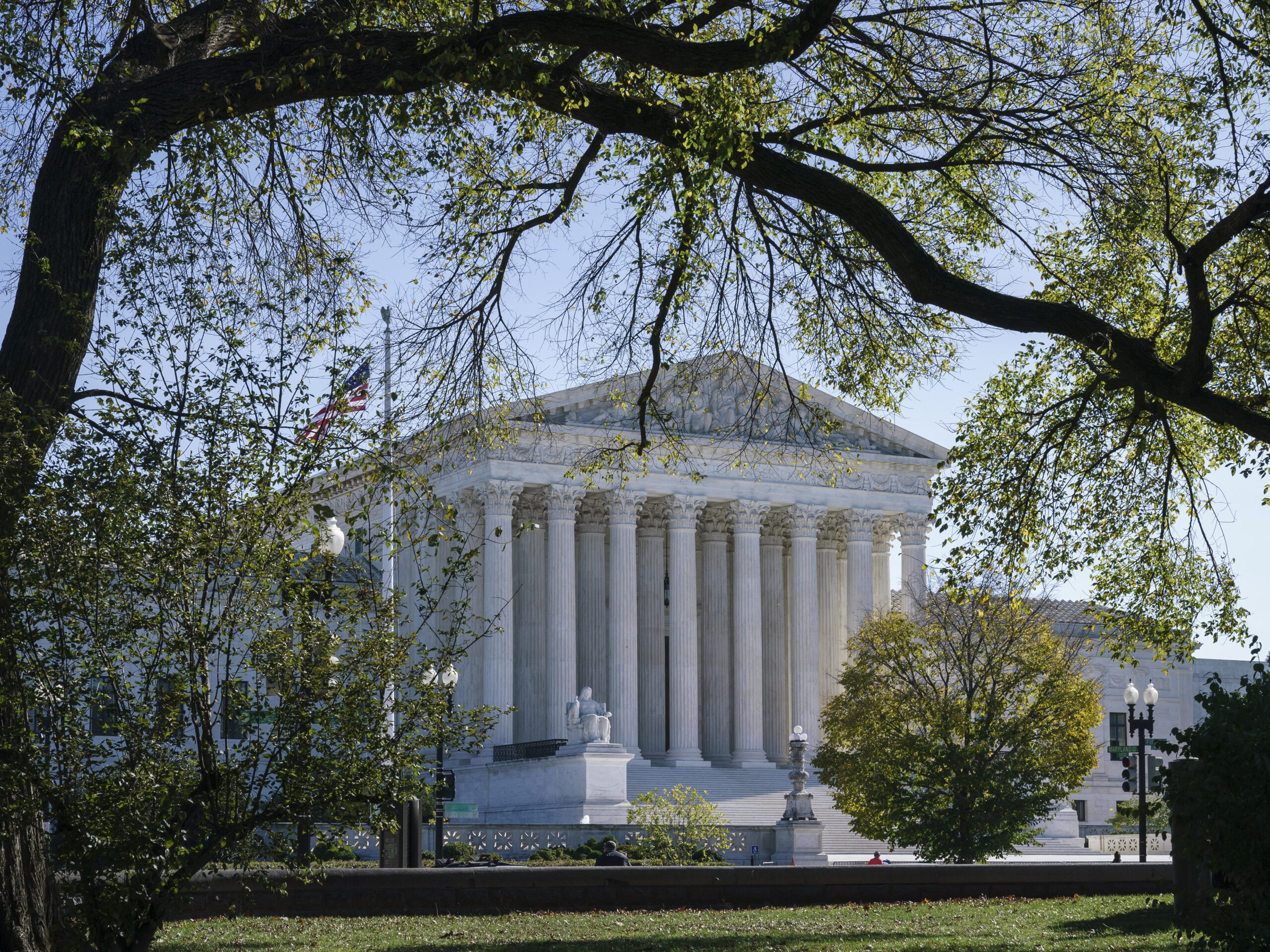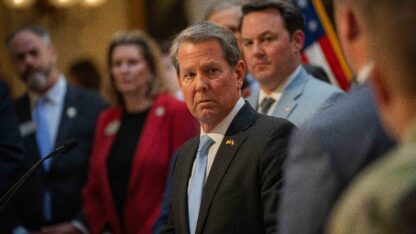The U.S. Supreme Court seemed closely divided Tuesday as it heard oral argument in a Mississippi case that tests the constitutional limits of sentencing juveniles convicted of murder to life in prison without parole.
At issue in Monday’s case was whether states may sentence a juvenile convicted of murder to life without parole, without finding that he is so incorrigible that there is no hope for his rehabilitation.
Brett Jones was 15 years old when he stabbed his grandfather to death during an argument about Jones’ girlfriend. He was convicted of murder, and a judge sentenced him to life without parole.
Over the past two decades, the law on juvenile sentencing has changed significantly. The Supreme Court — primed by research that shows the brains of juveniles are not fully developed, and that they are likely to lack impulse control — has issued a half dozen opinions holding that juveniles are less culpable than adults for their acts. And the court has also ruled that some of the harshest punishments for acts committed by children are unconstitutionally cruel and unusual punishment.
After striking down the death penalty for juvenile offenders, the court, in a series of decisions, limited life without parole sentences to the rarest cases — those juvenile offenders convicted of murder who are so incorrigible that there is no hope for their rehabilitation.
A new court composition
But all of those decisions were issued when the make-up of the court was quite different than it is now. Monday’s argument was the first time the court has heard arguments in a juvenile sentencing case with three Trump appointees on the bench, including new Justice Amy Coney Barrett who replaced the late Justice Ruth Bader Ginsburg.
The Jones case involves how to apply the prior Supreme Court rulings.
Close to a decade after Jones was sentenced to life without parole, the Supreme Court ruled that those, like Jones, who committed crimes when they were minors could not be automatically sentenced to life terms. Because Jones had been one of those who had received such an automatic life without parole sentence, the Mississippi Supreme Court ordered him to be resentenced. The judge did that, considering Jones’ youth at the time of the crime, but again sentenced him to life without parole. The judge did not make any finding that Jones was so incorrigible that he had no hope of rehabilitation.
Mississippi is among a handful of states that allows a life without parole sentence for juvenile crimes without requiring a finding of “permanent incorrigibility.”
Jones’ lawyer appealed all the way to the U.S. Supreme Court, contending that consideration of a defendant’s youth is not enough, and that Jones, now in his 30s, should have at least a chance at parole because he has shown he is capable of rehabilitation — he has earned a high school degree while behind bars and has been a model prisoner.
Jones’ lawyer, Northwestern University law professor David Shapiro, told the court that “Mississippi’s courts have denied the permanent incorrigibility rule itself, and the state continues that denial in this Court” by insisting that weighing the defendant’s youth against his crime was enough.
Alito’s withering questions
Justice Samuel Alito, who has long dissented from the court’s rulings on juvenile offenders, posed a series of withering questions.
“You want us to take the courts of this country into very deep theological and psychological waters,” he said. “Do you think that there are any human beings who are not capable of redemption?”
Shapiro replied that lots of states do make findings of incorrigibility, and so too could Mississippi where appropriate.
But Alito wasn’t buying it, remarking, “What would you say to any members of this court who are concerned that we have now gotten light years away from the original meaning of the Eighth Amendment, and who are reluctant to go any further on this travel into space?”
Justice Clarence Thomas too indicated that in his view the Eighth Amendment ban on cruel and unusual punishment does not include the kinds of protections for juveniles that the court in recent decades has adopted.
“I absolutely believe that Brett is not … incorrigible”
Justice Barrett, a mother of seven children, did not tip her hand, focusing on a procedural question about when and on what grounds Jones should appeal his sentence.
Lawyer Shaprio said that regardless, Mississippi doesn’t recognize the incorrigibility rule. “I absolutely believe that Brett substantively is not permanently incorrigible,” Shapiro said, noting that Jones’ grandmother, the wife of the victim, had testified on his behalf, that a correctional officer “spoke of his rehabilitation … his extraordinary record in prison, how he is an incredible worker and tries to get along … with everyone.”
Shapiro said that Jones had just turned 15 when he “committed a murder for the most immature reason possible, teenage infatuation.”
The record in the Jones case, he contended, shows that this murder was committed in a moment of “transient immaturity,” and that Jones has already proved himself capable of rehabilitation.
“Incorrigibility is not an objective fact”
But Mississippi Deputy Solicitor General Krissy Nobile countered that in resentencing Jones, the state court considered the mitigating circumstances of Jones’s youth and its attendant characteristics before exercising discretion to impose a life-without-parole sentence. And that, she argued, is all that the U.S. Supreme Court has required.
Justice Stephen Breyer noted that the Supreme Court had said a half dozen times in its most recent opinion that state courts cannot sentence a defendant to life without parole for a crime committed when he was a juvenile, unless the court finds that the defendant is “permanently incorrigible.”
The judge in this case didn’t do that, said Breyer. He got it wrong. “End of case,” he said.
Justice Neil Gorsuch chimed in, asking, “Why shouldn’t we just require a finding of fact that the defendant is permanently incorrigible?”
Lawyer Nobile replied, “I think that that is fairly illusory. … Incorrigibility is not an objective fact.”
A decision in the case is expected later in the court term.
Copyright 2020 NPR. To see more, visit https://www.npr.org.
9(MDAxODM0MDY4MDEyMTY4NDA3MzI3YjkzMw004))

9(MDAxODM0MDY4MDEyMTY4NDA3MzI3YjkzMw004))








